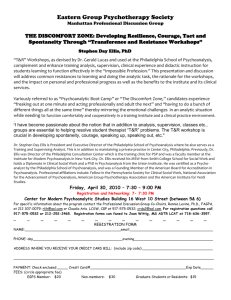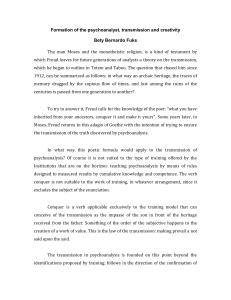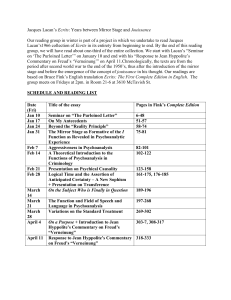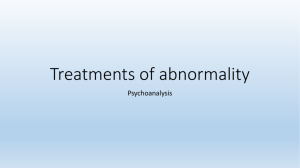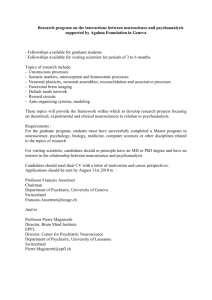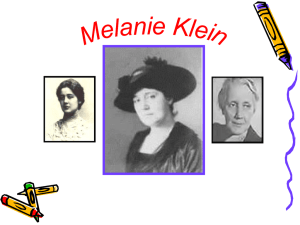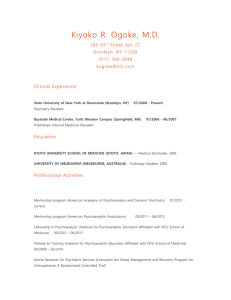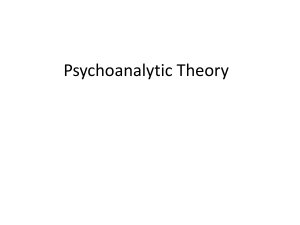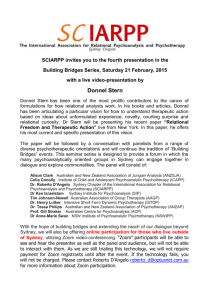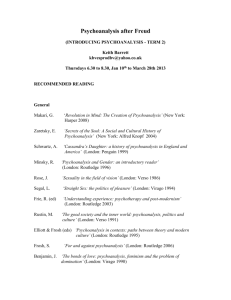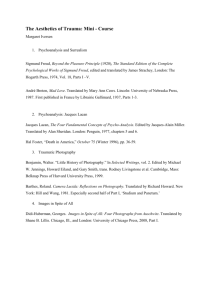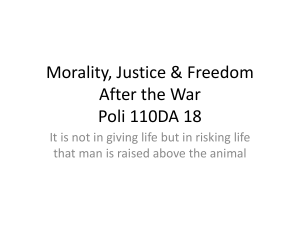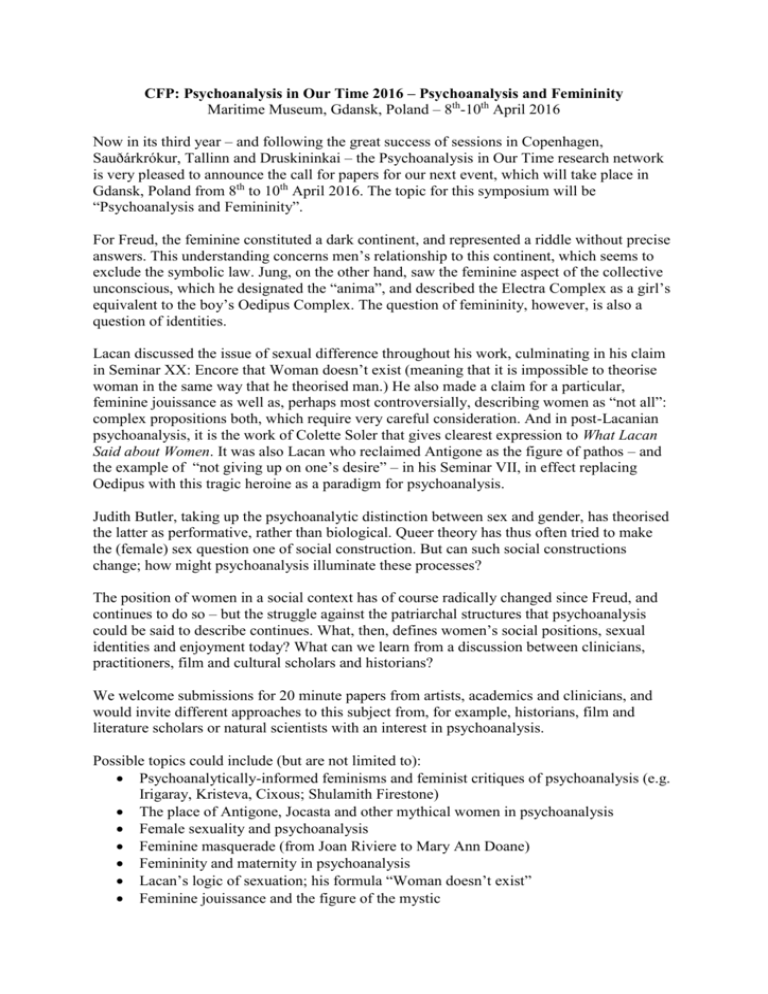
CFP: Psychoanalysis in Our Time 2016 – Psychoanalysis and Femininity
Maritime Museum, Gdansk, Poland – 8th-10th April 2016
Now in its third year – and following the great success of sessions in Copenhagen,
Sauðárkrókur, Tallinn and Druskininkai – the Psychoanalysis in Our Time research network
is very pleased to announce the call for papers for our next event, which will take place in
Gdansk, Poland from 8th to 10th April 2016. The topic for this symposium will be
“Psychoanalysis and Femininity”.
For Freud, the feminine constituted a dark continent, and represented a riddle without precise
answers. This understanding concerns men’s relationship to this continent, which seems to
exclude the symbolic law. Jung, on the other hand, saw the feminine aspect of the collective
unconscious, which he designated the “anima”, and described the Electra Complex as a girl’s
equivalent to the boy’s Oedipus Complex. The question of femininity, however, is also a
question of identities.
Lacan discussed the issue of sexual difference throughout his work, culminating in his claim
in Seminar XX: Encore that Woman doesn’t exist (meaning that it is impossible to theorise
woman in the same way that he theorised man.) He also made a claim for a particular,
feminine jouissance as well as, perhaps most controversially, describing women as “not all”:
complex propositions both, which require very careful consideration. And in post-Lacanian
psychoanalysis, it is the work of Colette Soler that gives clearest expression to What Lacan
Said about Women. It was also Lacan who reclaimed Antigone as the figure of pathos – and
the example of “not giving up on one’s desire” – in his Seminar VII, in effect replacing
Oedipus with this tragic heroine as a paradigm for psychoanalysis.
Judith Butler, taking up the psychoanalytic distinction between sex and gender, has theorised
the latter as performative, rather than biological. Queer theory has thus often tried to make
the (female) sex question one of social construction. But can such social constructions
change; how might psychoanalysis illuminate these processes?
The position of women in a social context has of course radically changed since Freud, and
continues to do so – but the struggle against the patriarchal structures that psychoanalysis
could be said to describe continues. What, then, defines women’s social positions, sexual
identities and enjoyment today? What can we learn from a discussion between clinicians,
practitioners, film and cultural scholars and historians?
We welcome submissions for 20 minute papers from artists, academics and clinicians, and
would invite different approaches to this subject from, for example, historians, film and
literature scholars or natural scientists with an interest in psychoanalysis.
Possible topics could include (but are not limited to):
Psychoanalytically-informed feminisms and feminist critiques of psychoanalysis (e.g.
Irigaray, Kristeva, Cixous; Shulamith Firestone)
The place of Antigone, Jocasta and other mythical women in psychoanalysis
Female sexuality and psychoanalysis
Feminine masquerade (from Joan Riviere to Mary Ann Doane)
Femininity and maternity in psychoanalysis
Lacan’s logic of sexuation; his formula “Woman doesn’t exist”
Feminine jouissance and the figure of the mystic
Film spectatorship, “to-be-looked-at-ness” (Mulvey); the female viewer
Female psychoanalysts and their role in the history of the discipline (from Spielrein
and Andreas-Salomé, to Anna Freud and Klein, and beyond)
Binary categories of sexual difference, essentialism, and queer theory in (or against)
psychoanalysis
Please send an abstract (max 300 words) and a short biographical statement to Dr Agnieszka
Piotrowska (agnieszka.piotrowska@beds.ac.uk) or Dr Ben Tyrer (ben.tyrer@kcl.ac.uk).
The deadline for submission is 11th January 2016.
Psychoanalysis in Our Time (http://psychoanalysisinourtime.wordpress.com) is an international research
initiative with the Nordic Summer University and the Nordic Council of Ministers (http://nordic.university),
with the aim of providing psychoanalytic interrogation of social, cultural and scientific issues. It is a transdisciplinary network that aims to create a space for a dialogue between clinicians, academics and practitioners
of psychoanalysis as well as scholars in other fields, including film, post-colonial, and literary studies in order to
investigate and elaborate ways in which psychoanalytic thinking can assist in understanding the events and
developments of our times. Our ambition is to be rigorous and outrageous, scholarly and radical.

